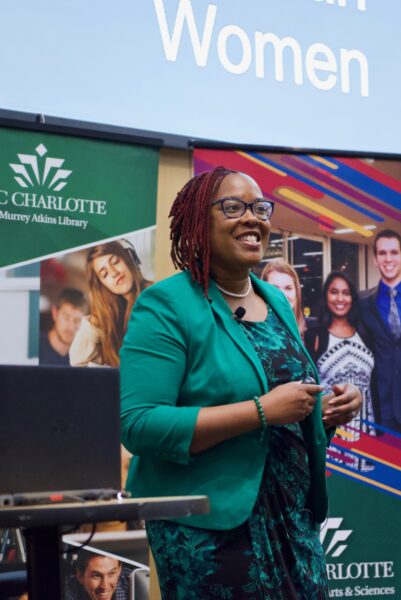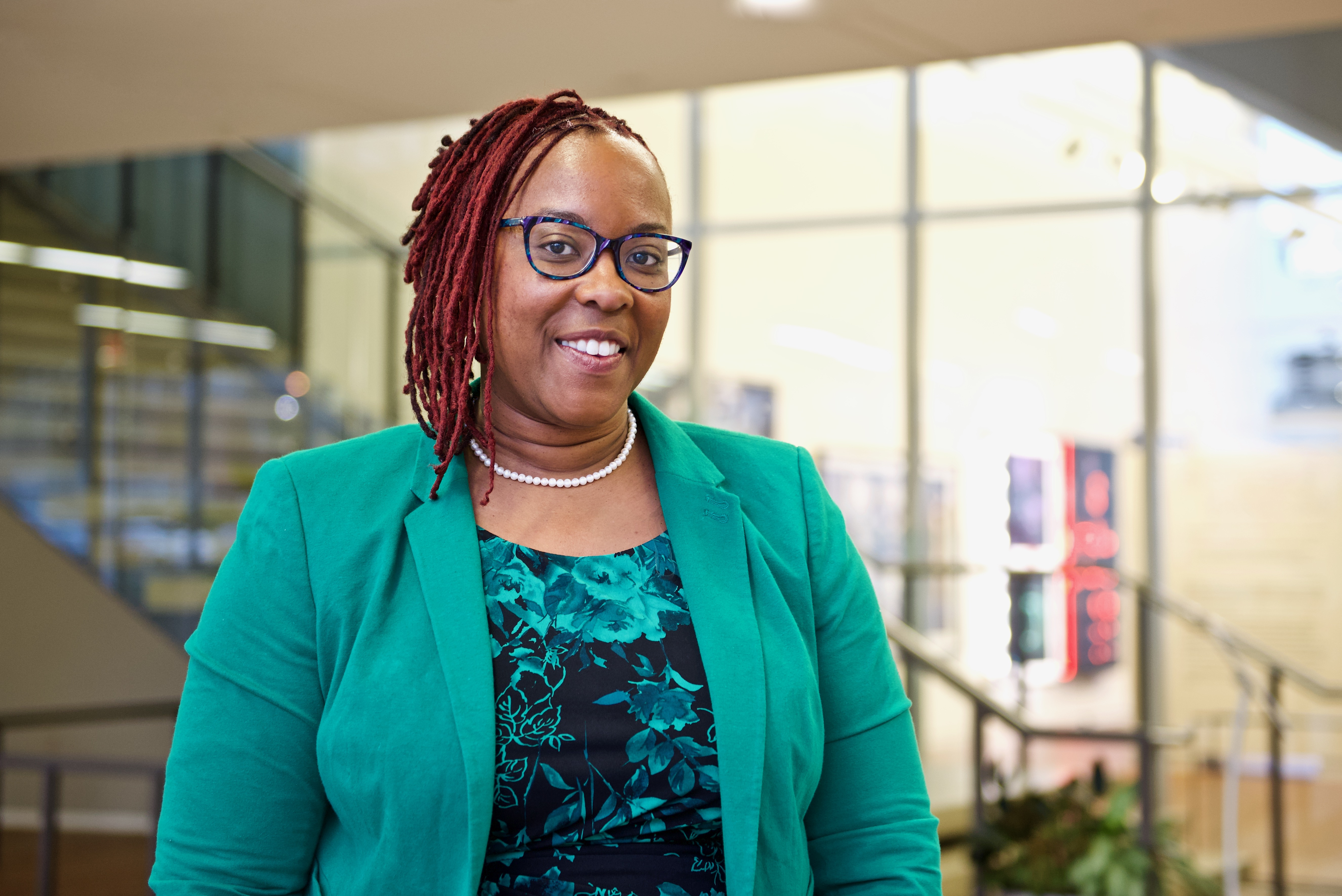UNC Charlotte Associate Professor of English Janaka Bowman Lewis will spend four weeks in summer 2019 in residency at the National Humanities Center in the Research Triangle Park, working on a project about “Black Girlhood and the Power of Belonging.” Lewis will join a select group of about 40 scholars from across the nation who have been chosen to do research in residency at the Center.
While at the Center, Lewis will use literature and media to complete a chapter from the monograph on which she currently is working, which is called “Black Girlhood and Narratives of Play.”
“The book discusses narratives written by African American women who go back to the period of childhood to discuss a claim to — and a transition in — their sense of agency and self-identification,” Lewis says. “The chapter I will be working on centers on the argument that narratives of girlhood in the 1970s focused on the power of girls, and specifically Black girls, to recognize themselves in media and culture.”
During the residency at the National Humanities Center, she will analyze cultural representations and fictional production during the 1960s to determine how moments of tragedy and resistance were represented, including the bombing of the 16th Street Baptist Church in Birmingham, Alabama on Sept. 15, 1963.
“This bombing took the lives of four Black girls and injured an additional 22 who were present,” she says. “I will research the parallels in the social analysis of the Civil Rights Movement through the Black Power Movement, and its cultural component the Black Arts Movement, and the representations of Black childhood, with a specific focus on what is passed down to Black children, and specifically Black girls, about the world around them through media.”
Research To Consider How Messages Of Black Power Reach Children
The chapter on which she will work during the summer residency discusses how messages of black power reached Black children, and girls in particular, and also how African American women authors created and revealed their own sources of power by representation of their own or others’ Black girlhood.
The monograph focuses on the significance of representations of African American girls and social engagement in literature, and argues that this self-recognition from the perspective of the narrator begins in childhood as the girls represent play as social interaction, from Harriet Jacobs in the 1830s, who is represented in her 1861 narrative Incidents in the Life of a Slave Girl to Starr Carter in Angie Thomas’ 2017 novel The Hate U Give.
“In this book, I continue the archive of representation of Black girlhood in fiction into the twenty-first century in an effort to provide a literary history of where this idea of what we now know as “Black Girl Magic” comes from, and its significance in American literature,” Lewis says.
Lewis is an associate professor of English, director of the Women’s and Gender Studies program, and faculty affiliate in the Department of Africana Studies in the College of Liberal Arts & Sciences. She teaches courses on 19th and 20th century African American women’s literature and African American archival and material culture.

Janaka Lewis talks about her book “Freedom Narratives of African American Women” at a Personally Speaking event.
In her previous book “Freedom Narratives of African American Women,” Lewis studied 19th century writings. This book discusses the genre of narratives of freedom and then examines women’s relationships to the community as they seek to illustrate a collective free identity. This book also reads women’s narratives of education, individual progress, marriage and family, labor, and intellectual commitments to see how they reflect and produce national and community rebuilding projects. She presented a talk on her book and the process of researching and writing it on Jan. 29 at the Personally Speaking authors’ series.
“Black women define freedom through all of the means listed above, but what is most significant for the purposes of their writing is freedom to choose their own paths and tell their own stories, in their own words and on their own terms,” Lewis says.
She has published several book chapters and essays about African American women writers of the 19th century in addition to book chapters on Black sports culture. Lewis has contributed essays and chapters on race and gender dynamics in higher education and is also the author of two children’s books.
Through the Center’s program, faculty from participating institutions are able to experience a concentrated period of supported research in this world-renowned setting. The program gives humanities scholars an opportunity to make progress on a new project or to jumpstart a new one.
The Center provides a team of librarians who assist the scholars, drawing on resources from the extensive holdings of surrounding universities as well as collections housed in libraries and archives around the world. Through public engagement intimately linked to its scholarly and educational programs, the Center promotes understanding of the humanities and advocates for their foundational role in a democratic society.
Words: Whitney Pittman, CLAS Communication Office Student Assistant | Images: Lynn Roberson, College Communication Director








